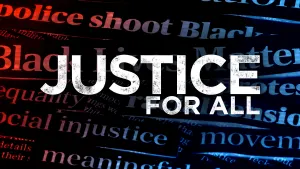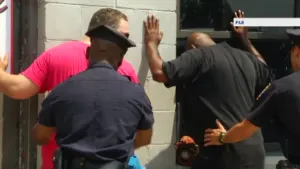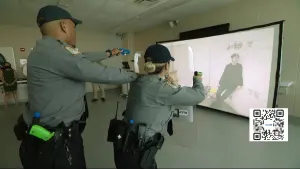More Stories
New York City made history this spring when the City Council approved a bill aimed at ending qualified immunity for NYPD officers. The longstanding legal protection is something activists pushed to dismantle when protests calling for police reform erupted last summer.
"I’ve had several lawsuits against the NYPD," said Hawk Newsome, co-founder of Black Lives Matter Greater New York. "I’ve had three cases dropped against me in the last two years against the NYPD, where I was unlawfully arrested and I couldn’t sue those cops personally."
EXPANDED COVERAGE: Justice for All
Qualified immunity is a legal doctrine that protects government employees, including law enforcement, from being sued in civil court - and potentially paying out of pocket - for infringing on someone’s rights while on the job.
Historically, someone could sue the police department for damages, but individual officers can invoke qualified immunity in their defense. In March, the New York City Council voted on a package of measures aimed at reform, and New York City became the first municipality in the nation to enact a local law limiting that immunity for NYPD officers in cases of excessive force and unreasonable search or seizure.
"It makes it clear that if you violate somebody’s civil rights, there can be a right of action against you," said Brooklyn Councilmember Stephen Levin. "And that means that police officers have some, some skin in the game.'
While the bill was being debated, NYPD officials argued that if passed, it would leave the city less safe. During council hearings, the police department also cited a 2017 study published in The Yale Law Journal study which found qualified immunity was granted in less than 4 percent of applicable cases.
The NYPD referred questions about the new law to police unions. Representatives from the Police Benevolent Association did not agree to an interview and didn’t respond to written questions. When the legislation passed, PBA president Patrick Lynch directed members to “proceed with caution” in a legal memo. Levin, who sponsored the bill, says it's still so new, it hasn’t yet been put to the test.
"The bill hasn’t even gone into effect and we’ve seen crime increase in 2020 and 2021...I don’t think that a bill that didn’t even go into effect yet is a driver in that," said Levin.
Bills that would move forward with similar rollbacks to qualified immunity for police officers are currently being considered by lawmakers in both the NY state Legislature and federal government right now.
Text and reporting by Amanda Bossard
More from News 12
3:49

Grand jury declines to file charges against police officers who shot motorist in New Jersey
3:50

Shooting of unarmed motorist by Bloomfield police will be investigated by grand jury

Justice For All Town Hall: Has anything changed in NYC since George Floyd was killed by police?
3:50

Justice for All: An in-depth look at the NYPD’s neighborhood policing program
6:29

Justice For All: NYPD takes News 12 inside its police academy
5:07
